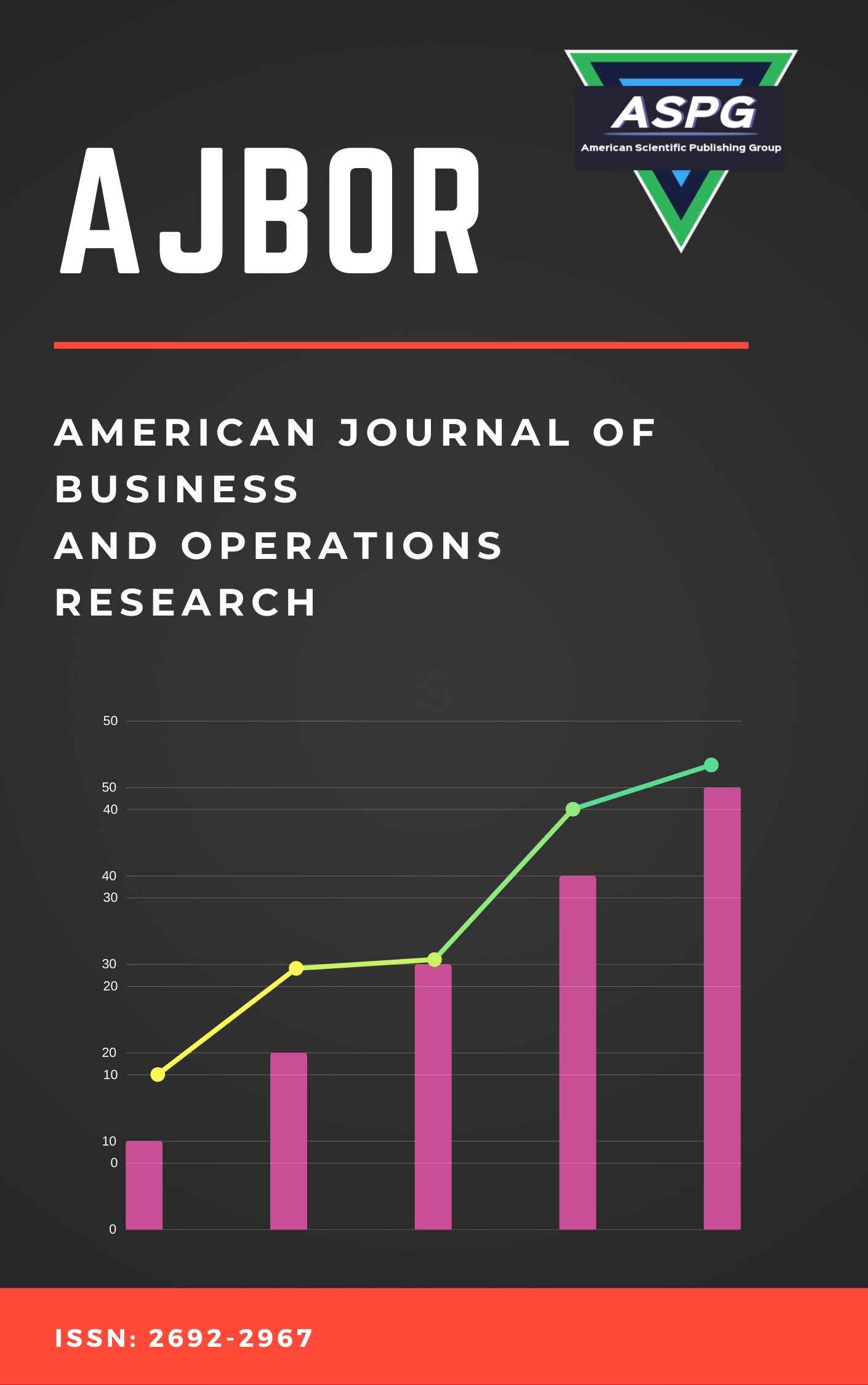

Volume 1 , Issue 2 , PP: 93-100, 2020 | Cite this article as | XML | Html | PDF | Full Length Article
Khyati Chaudhary 1 * , Gopal Chaudhary 2
Doi: https://doi.org/10.54216/AJBOR.010205
The dynamics of financial risk assessment in banking necessitate robust methodologies that harness the potential of intelligent data mining. In this study, we propose an applied approach that integrates sophisticated data mining techniques, notably XGBoost, within the context of banking data. Addressing the limitations of conventional risk assessment methodologies, our research emphasizes the need for a more precise and nuanced approach to identifying potential risks inherent in financial portfolios. Leveraging exploratory data analytics, meticulous preprocessing, and advanced modeling techniques, our methodology meticulously unraveled the intricate landscape of financial data. Through the application of XGBoost and comparative analysis against Support Vector Regression (SVR) and Random Forest (RF) models, this study elucidates the superiority of XGBoost in accurately predicting financial risk. Moreover, distributional analysis of socio-demographic attributes and loan amounts unveiled significant insights into risk determinants. The results underscore the pivotal role of intelligent data mining in refining risk assessment strategies within banking sectors. The comparative analysis, distributional insights, and superior predictive performance of XGBoost collectively emphasize the potential for advanced data mining techniques to revolutionize risk evaluation methodologies, empowering informed decision-making processes in navigating financial complexities.
Risk assessment , Machine learning algorithms , Financial risk management , Predictive analytics , Data-driven decision-making , Algorithmic risk analysis , Financial sector optimization , Data mining techniques , Intelligent risk modeling , Financial data analysis.
[1] Ravisankar, Pediredla, Vadlamani Ravi, G. Raghava Rao, and Indranil Bose. "Detection of financial statement fraud and feature selection using data mining techniques." Decision support systems 50, no. 2 (2011): 491-500.
[2] Ravisankar, P., Ravi, V., Rao, G.R. and Bose, I., 2011. Detection of financial statement fraud and feature selection using data mining techniques. Decision support systems, 50(2), pp.491-500.
[3] Liao, S.H., Chu, P.H. and Hsiao, P.Y., 2012. Data mining techniques and applications–A decade review from 2000 to 2011. Expert systems with applications, 39(12), pp.11303-11311.
[4] Rygielski, Chris, Jyun-Cheng Wang, and David C. Yen. "Data mining techniques for customer relationship management." Technology in society 24, no. 4 (2002): 483-502.
[5] Krishnaiah, V., G. Narsimha, and N. Subhash Chandra. "Heart disease prediction system using data mining techniques and intelligent fuzzy approach: a review." International Journal of Computer Applications 136, no. 2 (2016): 43-51.
[6] Wei, C.P. and Chiu, I.T., 2002. Turning telecommunications call details to churn prediction: a data mining approach. Expert systems with applications, 23(2), pp.103-112.
[7] Gai, K., Qiu, M. and Sun, X., 2018. A survey on FinTech. Journal of Network and Computer Applications, 103, pp.262-273.
[8] Elgendy, N. and Elragal, A., 2014. Big data analytics: a literature review paper. In Advances in Data Mining. Applications and Theoretical Aspects: 14th Industrial Conference, ICDM 2014, St. Petersburg, Russia, July 16-20, 2014. Proceedings 14 (pp. 214-227). Springer International Publishing.
[9] Bellazzi, R. and Zupan, B., 2008. Predictive data mining in clinical medicine: current issues and guidelines. International journal of medical informatics, 77(2), pp.81-97.
[10] Phua, C., Lee, V., Smith, K. and Gayler, R., 2010. A comprehensive survey of data mining-based fraud detection research. arXiv preprint arXiv:1009.6119.
[11] Bahrammirzaee, A., 2010. A comparative survey of artificial intelligence applications in finance: artificial neural networks, expert system and hybrid intelligent systems. Neural Computing and Applications, 19(8), pp.1165-1195.
[12] Zhong, R.Y., Xu, X., Klotz, E. and Newman, S.T., 2017. Intelligent manufacturing in the context of industry 4.0: a review. Engineering, 3(5), pp.616-630.
[13] Kou, G., Peng, Y. and Wang, G., 2014. Evaluation of clustering algorithms for financial risk analysis using MCDM methods. Information sciences, 275, pp.1-12.
[14] Thongsatapornwatana, U., 2016, January. A survey of data mining techniques for analyzing crime patterns. In 2016 Second Asian Conference on Defence Technology (ACDT) (pp. 123-128). IEEE.
[15] Geng, R., Bose, I. and Chen, X., 2015. Prediction of financial distress: An empirical study of listed Chinese companies using data mining. European Journal of Operational Research, 241(1), pp.236-247.
[16] Tiwari, S., Wee, H.M. and Daryanto, Y., 2018. Big data analytics in supply chain management between 2010 and 2016: Insights to industries. Computers & Industrial Engineering, 115, pp.319-330.
[17] Li, N. and Wu, D.D., 2010. Using text mining and sentiment analysis for online forums hotspot detection and forecast. Decision support systems, 48(2), pp.354-368.
[18] Kirkos, E., Spathis, C. and Manolopoulos, Y., 2007. Data mining techniques for the detection of fraudulent financial statements. Expert systems with applications, 32(4), pp.995-1003.